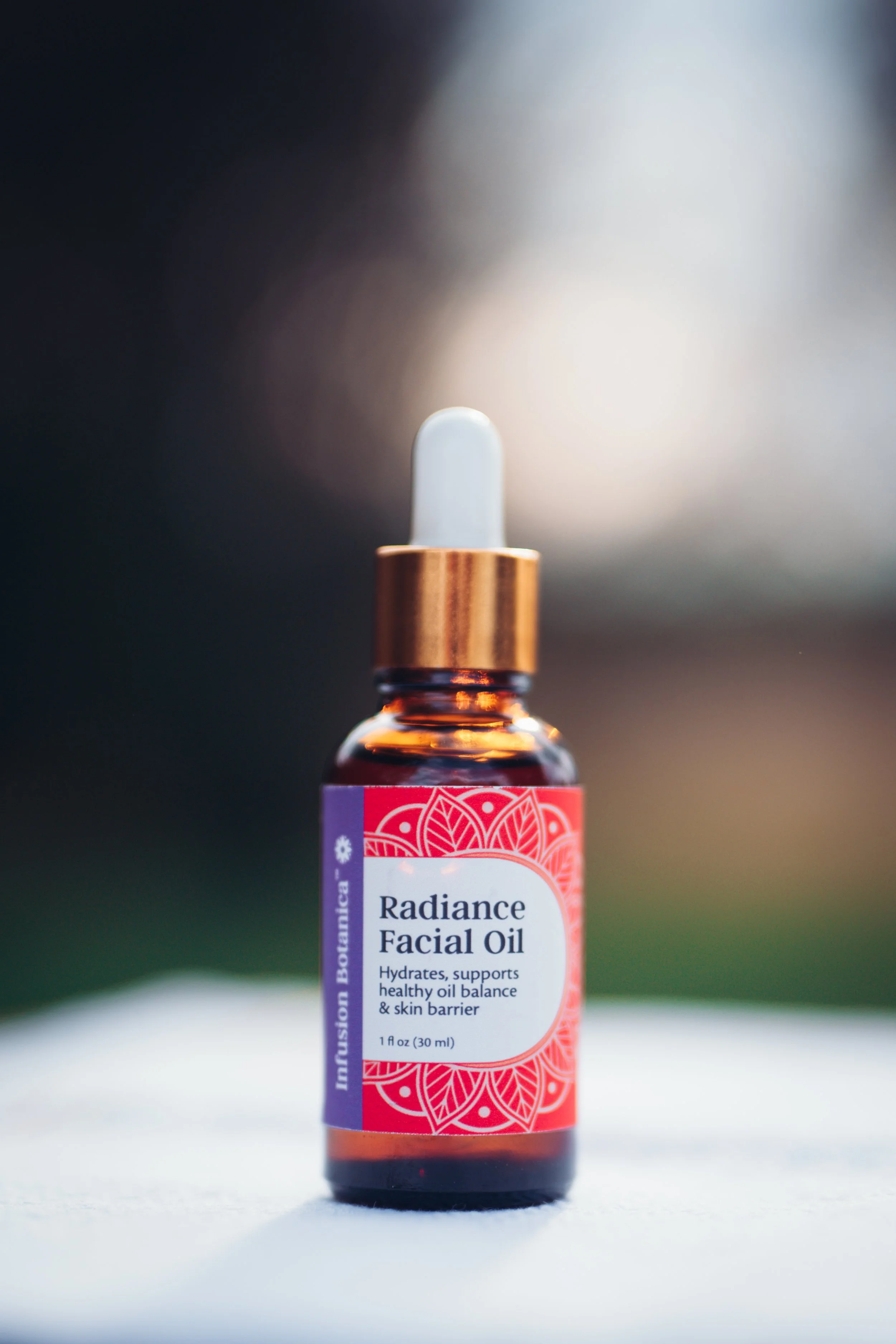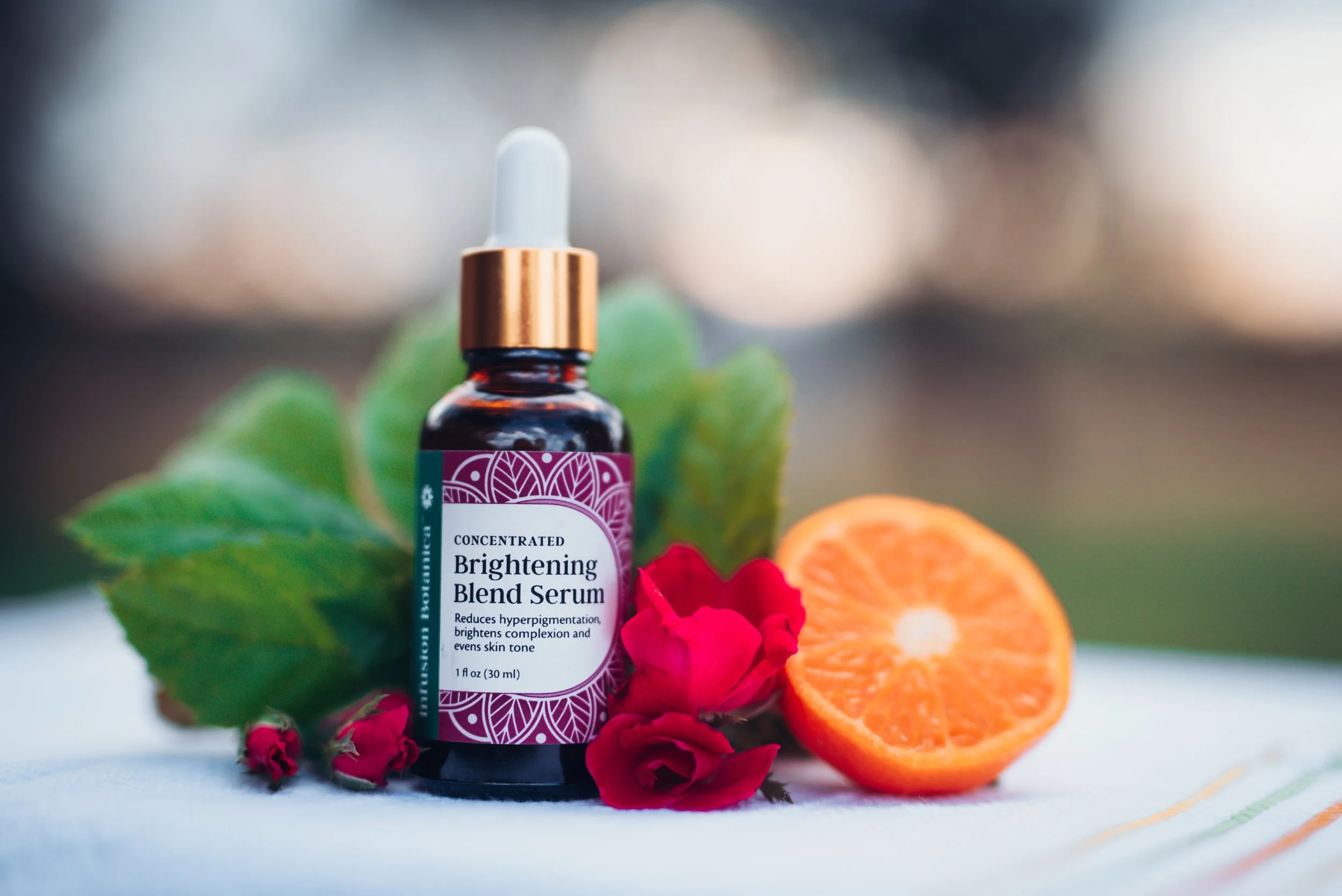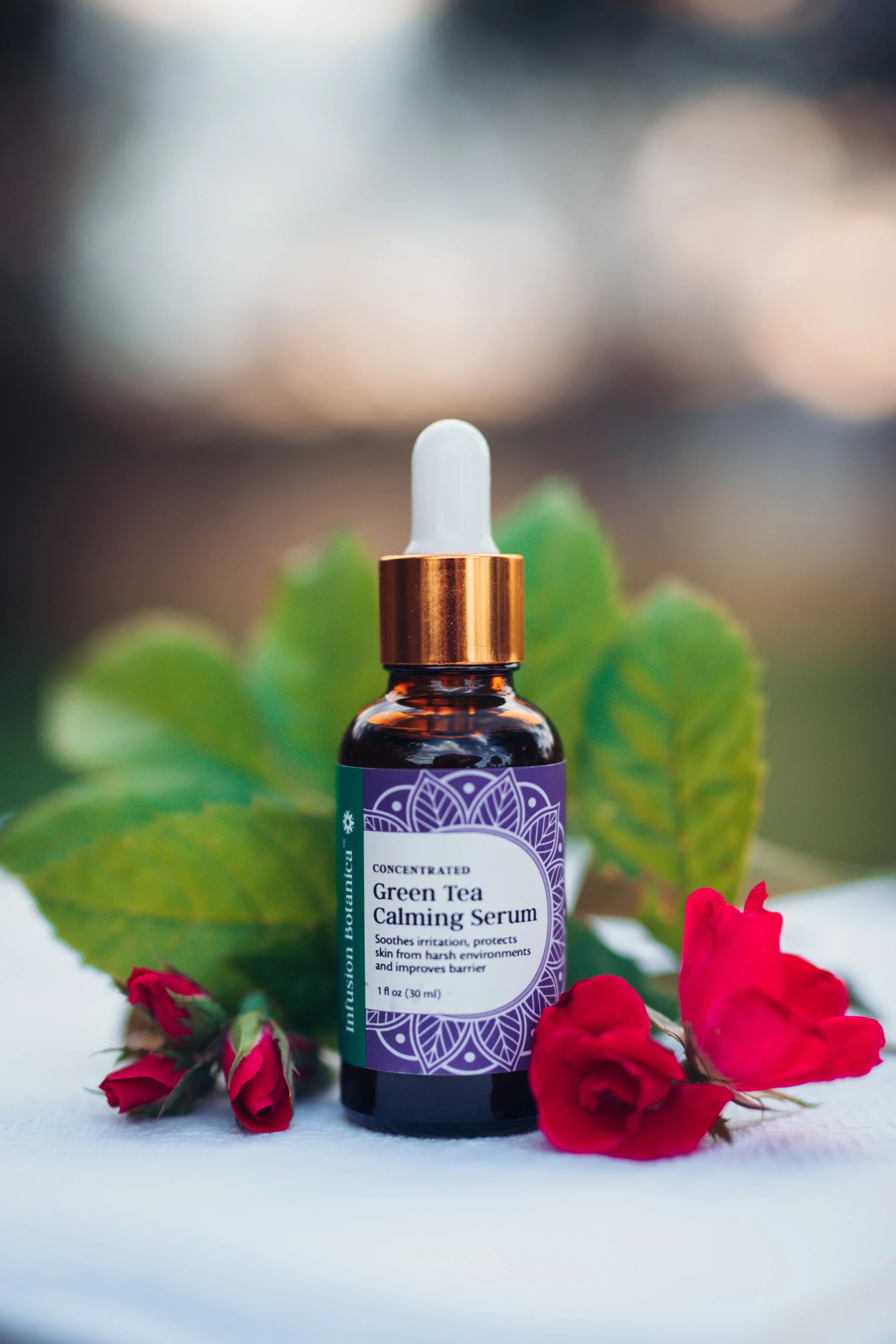Skincare should be safe & naturally nourishing
I’ve lived with allergies, food sensitivities, and skin problems for much of my life. In the 1990s, as a biochemical nutrition researcher, I grew interested in how food and the home environment shape health. I began replacing plastics with glass, choosing organic foods, and using safer cookware—changes that soon extended to natural fibers, non-toxic cleaners, and fragrance-free living. Eventually, my focus turned to skincare. In 2012, unable to find a non-toxic moisturizer for my sensitive skin, I began formulating my own facial oil. Over the years I have refined these blends through personal use and feedback from family and friends.
Most people understand the risk of contact sensitivities or allergic reactions from topical products, but many don’t realize that some ingredients can be absorbed through the skin and enter the bloodstream. Research on the long-term health effects of these ingredients is limited and often unclear. However, studies show that preservatives and synthetic fragrances are among the most common causes of irritation and allergic reactions. Other findings suggest that some skincare ingredients may act as hormone disruptors, raising concerns about parabens, phthalates, PFAS (“forever chemicals”), benzene byproducts, and other synthetic compounds. While the FDA regulates topical products, it does not pre-approve most ingredients, except for certain color additives. In short, synthetic ingredients are widespread in personal care, regulations are minimal, and research into their potential health consequences remains incomplete.
As a holistic practitioner, I’ve realized health and healing can be improved not only by removing potentially harmful substances from your environment, but also by adding food and herbs to provide much-needed nourishment to the body’s tissues and cells. In 2025, I began experimenting with herbal infusions to add nutritive and functional benefits to my topical formulas. The result is Infusion Botanica.
Formulations are guided by both traditional herbal knowledge and modern scientific research. Furthermore, my amazing community has contributed by testing formulations and provide honest feedback. Our modern world exposes us to countless toxins through our food, water, environment and skincare. While we cannot control every exposure, we can choose safer options for our skin.
About Herbal Infusions
Herbal infusions are made by gently warming herbs in plant oils to release and concentrate their natural phytochemicals. A single herb can contain hundreds of active compounds, including vitamins, minerals, and their precursors, plus compounds with antioxidant, anti-inflammatory, and antimicrobial properties. Beyond these general actions, peer-reviewed studies have identified specific compounds that support skin health in distinct and measurable ways, such as:
Promoting collagen production
Improving and evening skin tone and complexion
Enhancing hydration and supporting moisture retention
Reducing irritation, redness, and breakouts
Strengthening the skin barrier and aiding detoxification
Nurturing a balanced, healthy skin microbiome
About Tiffany Smith, LAc, MS, MSAOM
Tiffany has degrees in microbiology (BS) and cell and molecular biology (MS). She worked in the biotech industry for almost 15 years starting as a bench scientist, but spending most of her career in product management and marketing. She earned a Masters of Science in Acupuncture and Oriental Medicine in 2012, and has practiced acupuncture and herbalism since.




